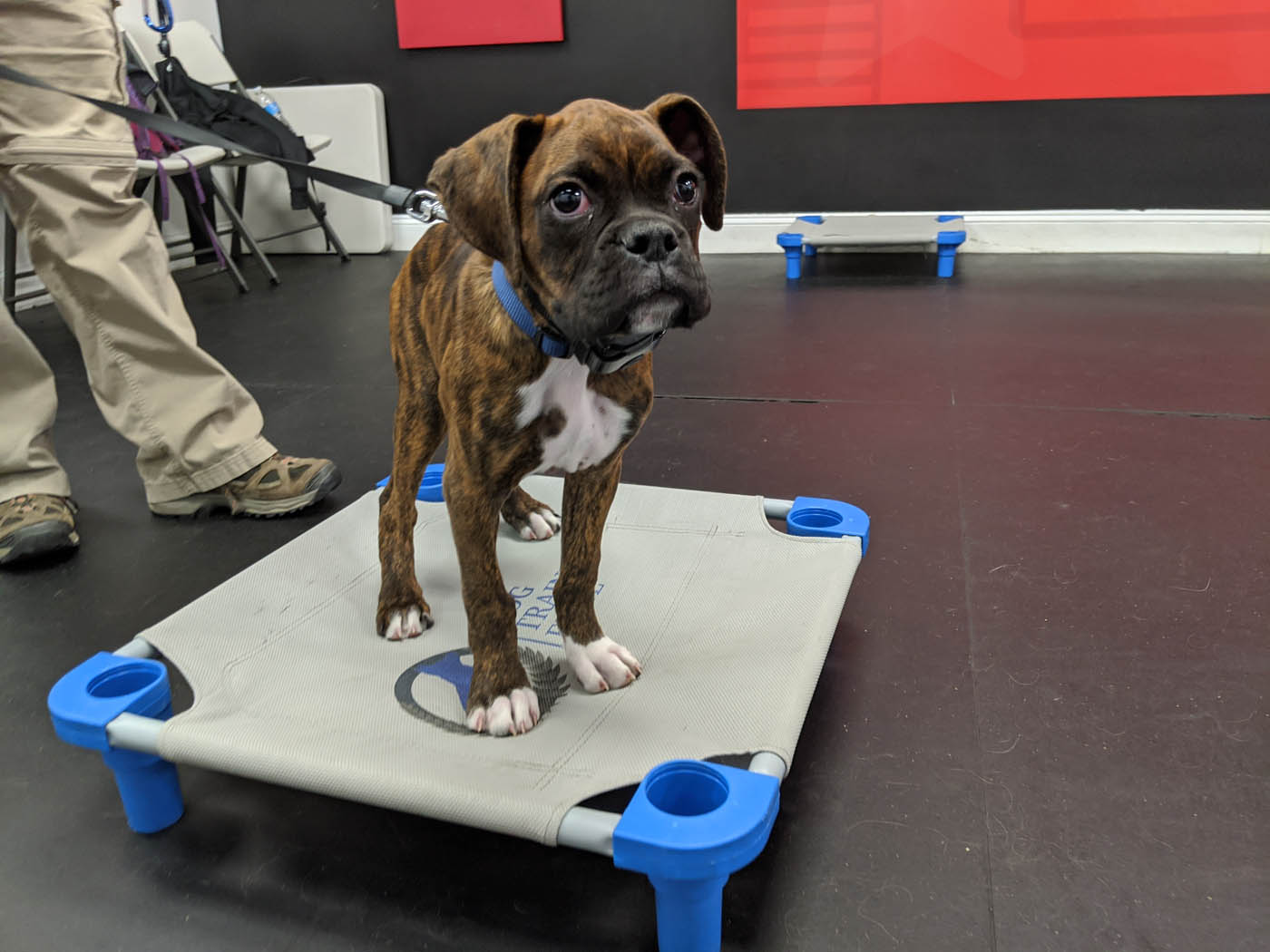Pulse of Information
Stay updated with the latest news and insights.
Pawsitively Perfect: Training Your Puppy Without Losing Your Mind
Unlock the secrets to stress-free puppy training! Discover tips to raise your fur baby while keeping your sanity intact.
Top 5 Positive Reinforcement Techniques for Puppy Training
When it comes to puppy training, positive reinforcement techniques are essential for fostering good behavior and strong bonds between you and your furry friend. These techniques rely on rewarding desirable behaviors rather than punishing unwanted ones, making training a more enjoyable experience for both parties. Here are the top 5 positive reinforcement techniques that can transform your puppy training sessions:
- Clicker Training: This method uses a distinct sound to mark desired behaviors, followed by a reward. The sound of the clicker helps your puppy associate the action with a positive outcome.
- Treat Rewards: Offering small, tasty treats during training encourages your puppy to repeat the behavior for more rewards.
- Verbal Praise: Simple phrases like 'Good boy!' or 'Well done!' can significantly motivate your puppy to behave correctly.
- Playtime: Incorporating play as a reward for good behavior keeps training fun and engaging.
- Consistency: Consistently applying these techniques helps your puppy learn faster and reinforces their good behavior over time.

Common Puppy Training Mistakes: What Not to Do
Training a puppy can be an enjoyable yet challenging experience, and many new pet owners make common mistakes that can hinder their puppy's learning. One significant error is inconsistency in commands and rules. When different family members use varying commands or allow different behaviors, it confuses the puppy, making it harder for them to understand what is expected. Additionally, punishing unwanted behavior instead of redirecting it through positive reinforcement can lead to fear and anxiety in your puppy. Instead, focus on rewarding good behavior to foster a trusting and loving environment that encourages learning.
Another frequent mistake is not socializing the puppy adequately. It’s vital to expose your puppy to a variety of environments, people, and other animals. Lack of socialization can lead to behavioral issues later in life, such as aggression or fearfulness. Additionally, many new owners underestimate the importance of short training sessions. Puppies have short attention spans, so lengthy training periods can lead to frustration for both the owner and the puppy. Remember to keep sessions brief, engaging, and fun. By avoiding these common **puppy training mistakes**, you'll set your furry friend up for a bright future.
How to Set Realistic Expectations for Your Puppy’s Training Journey
Bringing a puppy into your home is an exciting journey, but it's crucial to set realistic expectations for your puppy's training journey. Each puppy is unique, with its temperament, breed characteristics, and learning pace. Therefore, it's essential to recognize that while some pups may quickly grasp commands, others might take a little longer to learn. Patience and consistency are key. Instead of expecting your puppy to be perfectly trained in a matter of weeks, focus on incremental progress and celebrate small victories. This approach will help you maintain motivation and create a positive training environment for both you and your furry friend.
To further enhance your training effectiveness, consider implementing a structured routine that includes short training sessions and varied methods that cater to your puppy's learning style. For instance, using treats, toys, and verbal praise can all be effective reinforcement tools. It’s also important to understand that setbacks are a natural part of the training process. Acknowledge that occasional accidents and misbehavior are normal, and don’t let them discourage you. By keeping a long-term perspective and adjusting your expectations, you'll find that your puppy's training journey can be not only successful but also enjoyable.